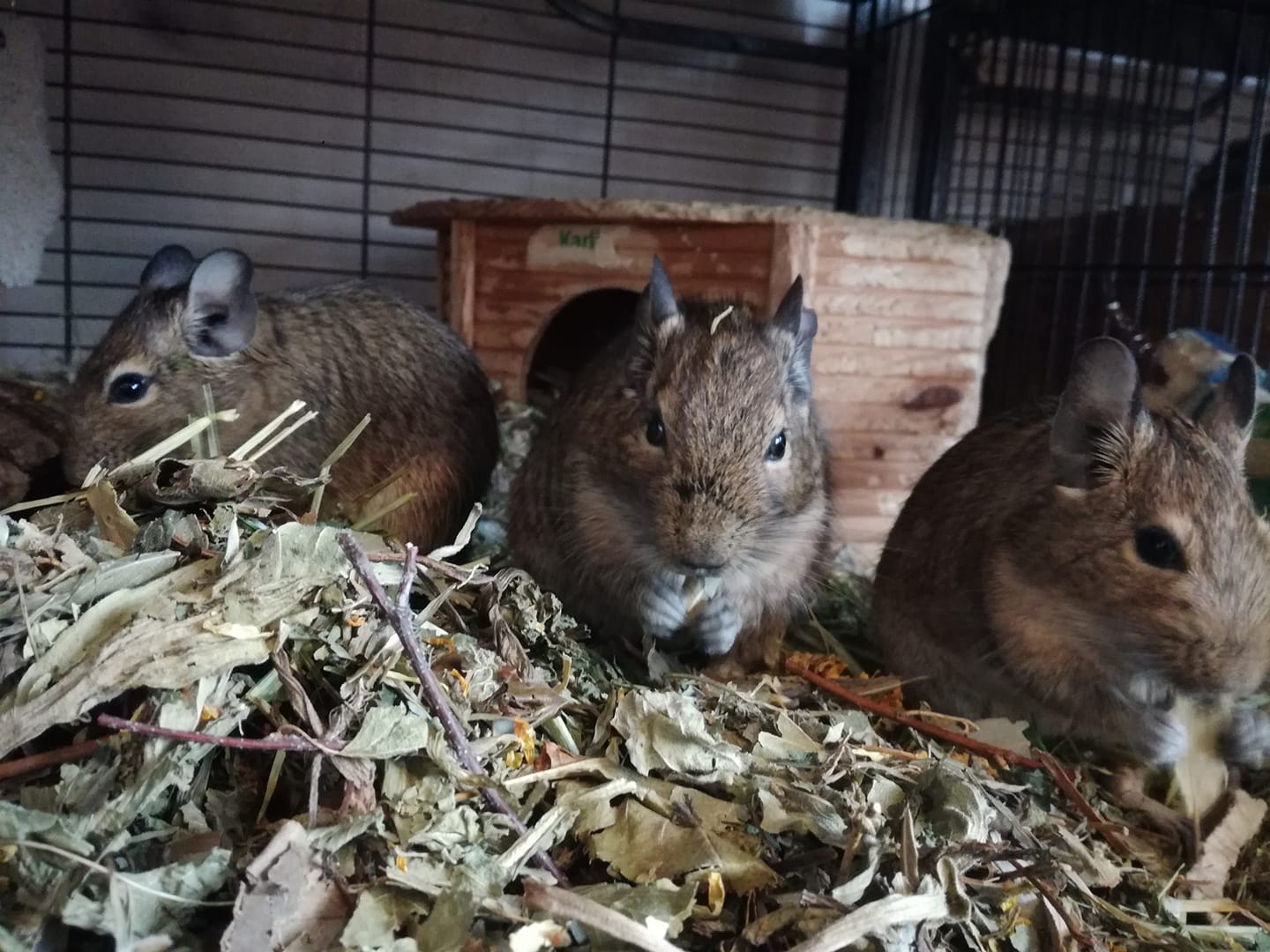

Rabbit & Guinea-pig Diet
The best diet that rabbits & guinea-pigs can be on is an ad libitum diet, for more information click here. In nature rabbits and guinea-pigs graze all day long on a variety of food, with fresh food being the most important, and so we should try to replicate that for our pets as their bodies are still adapted to that way of eating.
The fresh food portion should include fresh grasses & wild plants (forage), vegetables, kitchen herbs, fruit & branches. The dried food portion should include dried herbs, hay & seeds. Seeds are naturally eaten in the wild, adding essential fatty acids such as omega-6 and omega-3. In a pellet free diet, as recommended here, seeds are completely safe and natural
Our Dried Food Seasonal Mixes mimic the natural diet with whole leaves that help to wear down teeth and a rich selection of wild herbs, bark, leaves and roots that support a healthy colon and prevent obesity. Especially useful when forage is less abundant & perfect for replacing unhealthy and damaging pellets. Learn more about why pellets are bad here.



Chinchilla & Degu Diet
Chinchillas & Degus also do best on a mostly ad libitum diet that best reflects their wild diet, as their digestion remains the same as their wild counterparts. There are four important components to the diet of the chinchilla & degu:
Roughage includes dried herbs, bark, hay, flowers etc and this should be offered ad libitum.
Fresh forage & kitchen herbs can also be offered ad libitum. In nature this is where they would get most of their water from, so do not worry if water intake reduces- this is natural!
Fresh vegetables & fruits can also be offered in a small daily portion. Vegetables do not cause any issues on a pellet free, varied natural diet as recommended here.
Seeds should be given no more than 1tbsp per adult daily. Seeds are great for preventing diseases and they can also relieve symptoms such as abdominal pain, diarrhea, constipation or skin problems & are naturally eaten in the wild.
Find out more about Bunny Meadow!

Hamster, Gerbil, Rat & Mouse Diet
Hamsters, Gerbils, Rats & Mice require four important components in their diets:
Dried food mix which should include seeds, grains, nuts, dried herbs & dried vegetables (not in all cases).
Daily forage & kitchen herbs.
Vegetables, which should be fed daily, & fruit (be careful with fruit in animals prone to diabetes e.g, hybrid hamsters).
Branches/bark are great for good teeth and gum care & should be offered ad libitum.
Hay can also be added although not essential as a food component.
Insects are the healthiest animal protein and can be fed 2-3 times a week.
Try our seasonal foods and treats!

Why pellets are not part of a healthy diet
Compositional Problems
Commercial pellets are full of cheap fillers such as soy-bean hull/meal/oil, these are by-products mainly from the farming industry and are completely unsuitable for the diets of rabbits or guinea-pigs. Prebiotics are added so that the food does not upset the intestinal health, along with enzymes that allow the food (which cannot be digested by the natural intestinal flora), to be digested.
Tooth Problems
This type of food forces rabbits and guinea-pigs to chew up and down which is an unnatural mouth movement, meaning the back teeth crush rather than grinding and don’t wear down. This is especially important as hay intake is also reduced with pellets, nuggets or museli. In a diet with only a small amount of fresh food (the usual amount most animals receive), the pressure placed on the tooth roots by the up and down chewing motion can cause molar abscesses. These can further lead to the tooth growing back up into the jaw where it can break.
Other Health Problems
The heavily ground short fibers of the food move through the intestines rapidly, meaning that nutrients are not absorbed properly and the small particles can slow the gastrointestinal tract resulting in GI Stasis. They also swell in the stomach meaning that they will stop eating, thinking that they are full. You can test this yourself by placing some of your rabbit or guinea-pigs food in some water and watching to see what happens.















